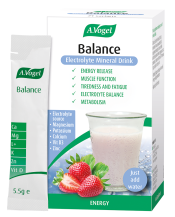Fruit or fruit juice, which is best?
Whole fresh fruit is much better than fruit juice. When a fruit is juiced, the sugary bit is extracted. All the fibre is left behind. This leaves you with a very sugary drink that spikes blood sugar levels faster than eating the whole fruit. Although it may be rich in certain vitamins, fruit juices lack a lot of the benefits of a whole fruit.
Many ready-made fruit drinks are not the real deal. They can contain sugary stuff that may be hidden. Watch out for terms like 'fruit drink' or 'juice drink'. This will usually mean that the drink contains some fruity substance rather than pure fruit. This may mean that you are not getting the nutrients that you were hoping for. There may be sugar in there that you were hoping to avoid.
Many 'fruit' and soft drinks contain artificial sweeteners, like sucralos, acesulfame potassium or aspartame. Some of these have received very bad press over the years. Controversy has plagued the use of aspartame in particular. From the seventies on, numerous studies have liked it to increased health risks – brain damage, cancers and neuroendocrine disorders. Health food stores will not let this ingredient pass their threshold. Despite this, many artificial sweeteners are still legal to use. It's up to the individual consumer to educate themselves to the potential benefits or risks. Here's a bit more reading if you would like to know more: The truth about artificial sweetners
Even pure fruit juice consumption has been linked to weight gain. Not to mention an increased risk of diabetes1. I think that this is very much to do with portion control. The NHS give the recommended serving of a pure fruit juice or smoothie as 150mls. This is a small teacup. Not a half pint glass. Not a NutriBullet mixer cup.
The NHS also say that juice and smoothies can only count as one of your five a day. Even if you have two or three portions2. They want you eating whole fresh fruit and vegetables.
Best fruit to eat for energy
Here's a breakdown of four of the best whole fruits to eat for energy and stamina:
1. Bananas
Bananas are a little powerhouses (or little powerboats). Surprisingly, they are considered berries. So are avocados, tomatoes, aubergines and peppers. Strawberries and raspberries are not, botanically speaking. They are aggregate fruits. Strange but true.
Bananas are rich in sugars and starches that release their energy slowly. They have a low to moderate GI rating for this reason. They are considered ideal for athletes who are doing prolonged and intensive activity3. Try using them before and during a long cycle or endurance activity. Bananas are cheap and accessible. When I am on the road, they are often the only healthy thing that I can find in roadside garages and faraway places.
The other attributes of bananas are the many nutrients they contain.
- Potassium helps regulate muscle contractions. This is another reason why they may benefit endurance sports. Potassium is also an electrolyte. It helps the body regulate fluid balance and hydration. A potassium-rich diet will benefit blood pressure and the heart too.
- Vitamin B6, along with the other B Vitamins, is essential if we want to turn our food into energy. Low levels have been linked to irritability and PMT4.
- Antioxidants help keep all the cells in our body in good working order. They help with the repair and regeneration. We wouldn't feel very energetic if this didn't happen.
- Inulin is a type of prebiotic that nourishes the good bacteria in our gut. This type of soluble fibre has been linked to enhanced satiety5. This is a pleasant feeling of fullness that stops you over-eating.
2. Avocados
Avocados are another fruit that benefit energy6. Smooth, creamy and filling. Avocados are nutrient dense and delicious. I absolutely love them in burritos. Have a look at this recipe - Mexican Avocado & Bean Burrito
- Fibre-rich and low in sugar, avocados contain prebiotics like FOS.
- Monounsaturated fats and oleic acid are what make avocados good as an energy source. These beneficial fats are known to reduce inflammation and protect against heart disease.
- Vitamin E is a powerful antioxidant and has known anti-ageing properties.
- Vitamin C is an antioxidant as well. Low levels can cause fatigue and our bodies can't store it/ so we need a daily supply. Vitamin C has been linked to reduced anxiety7 and better sleep8. Without Vitamin C, we can't absorb iron from plant sources.
- Potassium – as for bananas
- Magnesium is vital for the production of energy at cellular level. Without it we wouldn't be able to use our food for energy. It helps our muscles to contract and relax.
- B Vitamins: folate, vitamin B6, niacin, pantothenic acid and riboflavin. These help us to release energy from food. They also help with the production of many chemicals that regulate mood.
- Vitamin K is involved in energy production and a myriad of other functions: bone formation, blood clotting and heart health.
3. Goji berries
Goji berries were super fashionable a few years ago. Traditionally used in Chinese medicine as a kidney and liver tonic. Like anything touted as a superfood, there were all sorts of claims made. There are studies to show that they do have a favourable effect on glucose control9. That is very good news for anyone who wants to avoid energy spikes and the subsequent crashes. Goji berry muesli would be an excellent alternative to coffee and a croissant. Goji berries will work as a stable source of energy and keep you going for longer. They are very rich in a number of nutrients, especially antioxidants.
- Vitamin C
- The carotenoid zeaxanthin is in the red pigment of the goji berry. It's been found to help prevent macular degeneration of the eyes.
- Selenium is really important for a healthy thyroid gland. The thyroid gland controls the metabolism.
- Vitamin A is an antioxidant. We need it for the lungs and heart to work properly.
- Minerals: copper, iron and zinc – all of these are important for energy production.
My Self-Care Tip: One way to boost your Vitamin C naturally
Vitamin C is a water soluble nutrient and because of this, the body doesn't store it. We need a constant supply and can fall short in times of stress, or when we are run down. Watch my self-care video tip below for my top tip on how to boost your vitamin C naturally:
4. Apples
Apples are another fruit that are so easy to get anywhere. Unlike many of the fruits mentioned, it grows in this part of the world, which is a huge bonus. Locally-grown fruit are often much fresher and are more nutritious. They haven't spent ages being shipped around the world, locked up in cold storage. One study found that an apple a day led to a 28% reduced risk of diabetes10. There are also studies showing that it may help with heart health as well as cholesterol.
- Fibre-rich, apples are quite high in fruit sugar. An apple can contain between 10 and 19g of sugar. Because of the fibre, apples release their sugars more gradually than a juice. They are ideal to reach for if you have an energy slump between meals.
- Vitamin C and flavonoids contribute to apples' antioxidant action. Both quercetin and pectin can help to reduce inflammation too. That's an added extra if you are feeling a bit stiff and achy.
These are only a few of the fruit and vegetables that can transform your energy levels. Increasing the amount you eat every day has all sorts of proven benefits.
If you are lacking inspiration try our recipe pages for ideas
Referrences:
1. https://www.ncbi.nlm.nih.gov/pmc/articles/PMC2453647/has
2. https://www.nhs.uk/live-well/eat-well/5-a-day-portion-sizes/
3. https://www.ncbi.nlm.nih.gov/pmc/articles/PMC3355124/#:~:text=Bananas%20are%20a%20cost%20effective,source%20of%20carbohydrate%20and%20potassium
4. https://www.ncbi.nlm.nih.gov/pmc/articles/PMC27878/
5. https://www.ncbi.nlm.nih.gov/pmc/articles/PMC5510210/#:~:text=Studies%20show%20that%20consumption%20of,have%20on%20the%20human%20body
6. https://www.ncbi.nlm.nih.gov/pmc/articles/PMC3664913/
7. https://europepmc.org/article/med/26353411
8. https://www.ncbi.nlm.nih.gov/pmc/articles/PMC3703747/
9. https://pubmed.ncbi.nlm.nih.gov/28401234/
10. https://www.tandfonline.com/doi/abs/10.1080/07315724.2005.10719488








